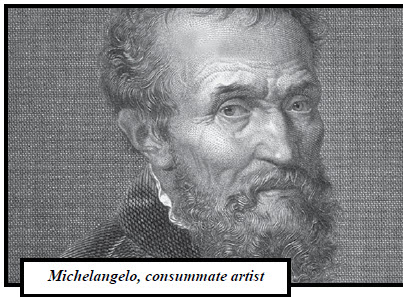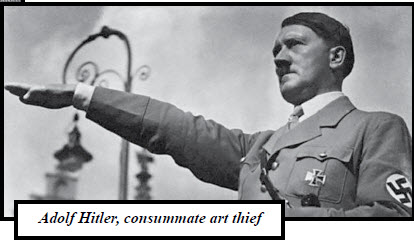When Words Fail – The Millennial Mind
 By: Rosemary Dewar
By: Rosemary Dewar
Visual art has the capacity to influence the perception of those who consume it. Any well-planned composition can sway one’s opinion of a particular product or person. If a government were to have sole control of the output of art and commercialism, it would do what any proficient bureaucracy would do: dehumanize it. We see it in totalitarian propaganda where a leader is more than a man, and the undesirables are less than an animal. Similar to the entertainment we consume, ethics and opinions are embedded with the Art. As usual, sometimes the hardest thing to see can be what is right in front of you.
Journalist Andrew Breitbart is often quoted as saying, “Politics is downstream of culture.” That holds true as long as politics is small enough to be controlled. If a political structure is big enough to control the culture, art has the ability to weaken the political structure. If you control the art, you control the culture. What people look at, they talk about, and what they talk about, they think about when they’re by themselves. The content is just as important as the narrative.

During the Italian Renaissance, the Medici dynasty dominated mercantile trade so competently that they were able to function as patrons for the greatest artists, politicians, and religious leaders of the 15th, 16th, and 17th century. Without that type of influence and stature, artists such as Raphael and Michelangelo would not be known to us today. Discoveries made by scientists like Galileo would have been buried for centuries. Could you imagine being a top-dog as were the Medicis for nearly 300 years? That is quite an astonishing accomplishment! Every regime has its flaws; of course, there was corruption and injustice. The Inquisition is a blot on Europe’s history, and the monopolized power in a part of the Catholic Church has shadowed the legacy of the Catholic Church ever since. Simultaneously, the most magnificent and lavish paintings, sculptures, architecture, scientific advancement, and religious expansion that continue to fascinate and confound scholars today was birthed then. Art was lofty and elevated to give society something to aim for. There simply has not been another time period that parallels it in positive mastery.
There have been many totalitarian regimes that have long understood the power of art to influence and shape society. Instead of seeing a religious figure stylized and distributed en masse, you would see the dictator stylized the same way you would see a Christian saint complete with either sun beams or a halo-like motif. Notice what they wear. It is usually a clean-cut suit while staring off into the void. It is cold and sterile. Eventually, the lower half of society is being given what is efficient rather than something that is visually pleasing. Individuality is made to become obscure, and conforming one’s self to the collective purpose is expected. This is similar to how one is made to feel in the army. Any unauthorized stimuli is deemed frivolous or contraband. It is one thing for an actual army unit to conform in this manner, but to demand it of the civilian population for the sake of efficiency and loyalty diminishes the individual as if they were livestock. Beauty, style, and variety are privileges set aside for the leaders that keep their loyalists in line. In the 20th century, there was not a Michelangelo or Galileo that came from Stalin’s Russia or Mao’s China. Instead, the globe devolved into war resulting in over a hundred million people dead at the hand of militant uniformity.

In the United States’ current culture, individuality is so vital, but it is constantly under inspection. Deviation from a community’s norms is met with disapproval. Public figures are banned from media platforms, and socially reprimanded for merely expressing an idea aloud. Because the visual is extremely powerful, in order to assert or enforce a behavioral edict, it is possible to present people who definitely look different, but all happen to say the same thing. It helps give the illusion that a social policy is valid. When you have someone else tell you that one may not care what you look like, but wants to find out whether or not the ideas are effectual, that changes the conversation entirely. That is ‘why’ you may see character indictments that attempt to frame people as insensitive, uncaring, or under-educated. Should culture bend to ideological conformity, it will find it harder to cultivate the same masterful innovations we enjoy here and now.
By: Rosemary Dewar
